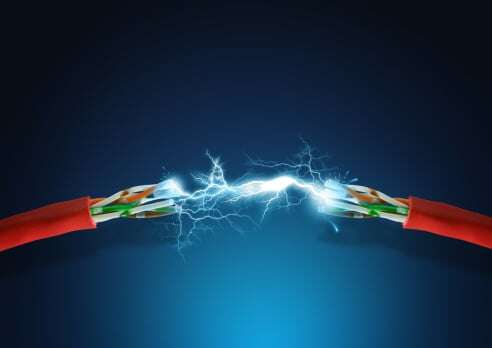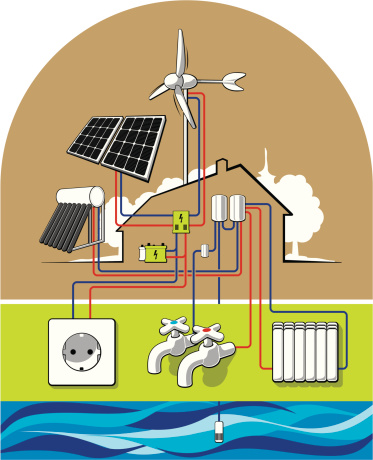 If you've never experienced an electrical shock, we want to help you keep it that way.
If you've never experienced an electrical shock, we want to help you keep it that way.
The fact is, virtually all electrical repairs carry the risk of shock. And while we continue to support the do-it-yourself spirit popular these days, we think it also pays to understand what causes shocks and how to avoid them – just as professional electricians must do.
It may help to think of shocks as accidents, with you as the unwitting conductor. Normally, electricity travels through closed circuits. But when you accidentally become part of an electric circuit, you can receive a shock.
Technically, this happens when you complete the electrical path through:
- Both wires of an electric circuit
- One wire of the ground and an energized circuit
- A piece of metal that accidentally becomes energized because of a lapse in insulation
- Another “conductor” that carries electric current
Under any of these circumstances, an electrical shock can trigger anything from a mild tingling sensation or a temporary “freezing” of position to full cardiac arrest. Even a mild shock warrants your full attention because it means that electricity is not flowing as it should. In other words, it's using you as part of the circuit.
At this point, you should immediately turn off and unplug the device you're working on. And for your own safety and peace of mind, call a licensed electrician so that he can identify and repair the root of the problem.
Of course, most of us don't see shocks coming when doing electrical repairs. That's why they're called “accidents.”
Certain conditions have “danger” written all over them and should be avoided:
- Outlets that are wobbly, broken or otherwise unstable.
- Extension cords that are cracked, dented, broken or otherwise in a state of disrepair. (For more info on how to repair a damaged extension cord click here).
- Touching electrical devices with wet hands or feet or even in a profusely sweaty condition. Why does moisture pose such a threat? Because it lowers your body's natural resistance to the hazards of voltage. This is why electrical repairs in bathrooms require special care and attention. Power receptacles near sinks, bathtubs and showers should be watched carefully. Exercise double precaution with repairs near swimming pools and hot tubs.
- Power tools that demonstrate any evidence of sluggishness or strange “behavior.” These should be discarded immediately. Strange as it may sound, many people get used to periodic shocks from their power tools. This is not normal; in fact, it could be life threatening.
What other steps can you take to reduce the risk of shocks as you perform electrical repairs?
- Never tackle a repair that you don't feel confident about undertaking. Call a Chico area licensed electrician instead and take the opportunity to watch and learn from his expertise. Then consider doing the repair yourself next time.
- Keep your tools in a good, clean state and working order.
- Wear protective equipment, including shoes, and always err on the side of caution rather than risk.
- Ensure that there are enough electrical sockets available for you to complete your repair and that they're not overloaded.
- Stop using any equipment – and halt any electrical repairs immediately – if you smell something burning or see smoke or fire.
The best thing to do if you have any questions or are uncertain about how to proceed with electrical repairs is to call a licensed electrician. At Experts In Your Home your safety – and that of your family – is always our first priority. Contact one of our experts today.
Stay safer - download this FREE Guide on electrical jobs you shouldn't DIY:








